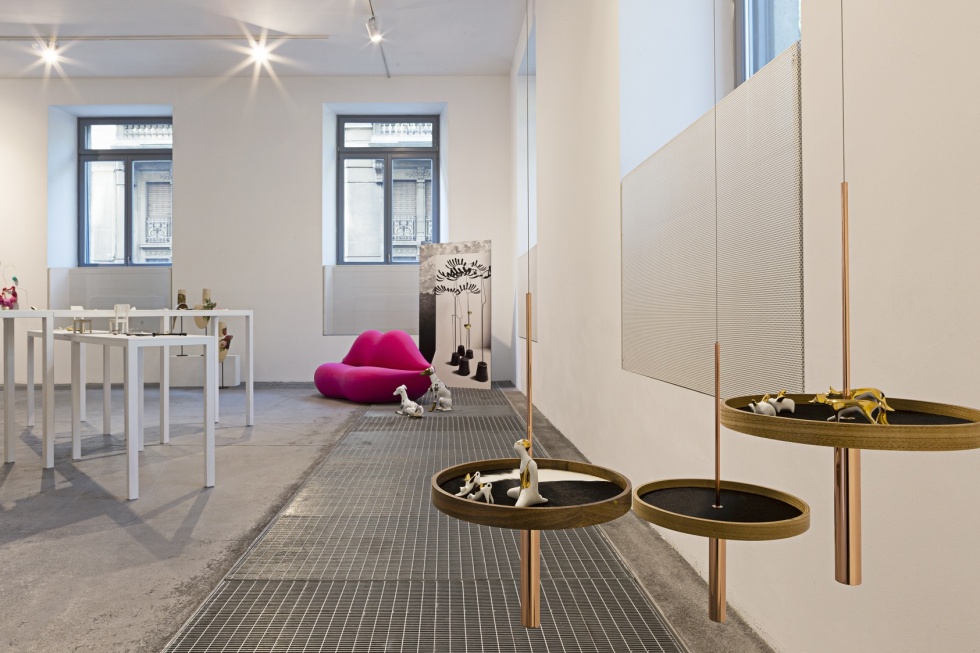Italy is now one of Europe’s main destinations for executive retreats and business meetings. Companies are increasingly turning to the country for leadership training and professional events, and this growth is reshaping the corporate travel sector.
In 2023, Italy hosted 340,057 MICE events, with 27,152,890 delegates attending. That’s a 28% increase compared with the previous year. This isn't merely recovery from pandemic setbacks; it represents a fundamental shift in how European businesses perceive Italy's potential for high-level corporate gatherings.
The renaissance of Italian business tourism
Something fascinating is happening in Italy's conference rooms and luxury venues. The Italian Federcongressi&eventi (a corporative body that not only represents the industry, but also tracks its trends, shifts, and evolution) recorded particularly robust growth in multi-day events, with attendance figures soaring by over 50% compared to 2022. Companies are rediscovering the value of face-to-face interactions, and they're choosing Italy as their preferred stage.
.jpg)
Most events are organised by companies themselves (66.3%), whilst associations account for 22.3% of the total. This corporate dominance demonstrates how Italian business tourism has evolved beyond traditional conference formats into something more strategic and immersive. Most events take place in the north, which accounts for 59 percent of the total. Central Italy follows with 24.7 percent, the south with 10.2 percent, and the islands with 6.1 percent. Conference hotels are still the preferred venues, hosting nearly 78 percent of events, while conference centres and trade fair spaces are seeing the fastest growth.
Record-breaking performance across all industries
Business travel spending in Italy reached €21 billion in 2023 – a 23% increase that exceeded pre-pandemic levels two years ahead of predictions. The flight sector recorded 14.3% growth, hotels expanded by 12.3%, rail transport surged 23.1%, and car hire increased by 12.5%. This outsanding performance - that so many in our field relentlessly worked towards for the past two decades - reflects something deeper than mere recovery. Italian businesses are investing strategically in events as marketing and retention tools, whilst associations (particularly in medical-scientific fields) are returning to congresses as knowledge-sharing platforms.
What makes Italy such an appealing destination for luxury business retreats?
Italy has much to offer that companies value. Its natural, architectural, and historical settings allow for a variety of different events and grant a level of versatility that no "normal" luxury resort can hope to match. Leadership sessions, workshops, presentations, and team building activities, for instance, do not have to take place in meeting rooms, but can be taken outdoors for a stunning effect. Have you ever held a meeting on the shores of Lake Como, in a Tuscan vineyard or in an ancient Masseria in the Apulian countryside? If you have, you know what we mean. The mix of heritage, modern hospitality and refined surroundings creates an atmosphere that supports focus and new ideas.
The best venues - all event planners will agree - are those that combine practical needs with inspiring details. Many offer advanced meeting facilities as well as smaller rooms for private discussions. After work, groups can join wine tastings, cultural visits or wellness activities, turning a business trip into an experience that strengthens professional relationships.
.jpg)
The wellness factor in corporate planning
Today's executives are increasingly conscious of work-life balance, and Italy delivers on this front magnificently. Wellness-inspired incentive trips in regions like Puglia combine business objectives with restorative experiences that leave participants refreshed rather than exhausted.
The slow travel trend, with 84% of Italy tour providers reporting increased demand since early 2024, aligns perfectly with executive retreat objectives. Longer stays allow for deeper engagement with both business content and cultural immersion, creating lasting impact beyond the event itself.
Technology meets tradition in Italian corporate venues
Italian hospitality has embraced digital transformation whilst maintaining its legendary warmth. The new ENIT (Italian National Tourist Board) is leveraging AI to improve services and offer personalised experiences to business visitors. This technological sophistication, combined with Italy's natural advantages, creates compelling value propositions for corporate decision-makers.
More companies are making choices based on environmental standards. In Italy, 80 percent of medium and large firms now select suppliers with strong sustainability practices. International corporations are following the same path, looking for retreat options that match their ESG goals.
The premium positioning advantage
Italy ranks second in Europe and third in the world for the number of meetings hosted, after the United States and Spain. This position helps attract senior participants and increases the value placed on events held in the country.
Conference centres and venues have responded by upgrading facilities and services. From private jet accessibility to five-star accommodation standards, Italy's infrastructure supports the expectations of C-suite participants and board-level gatherings.
Future prospects and trends
Italy’s corporate travel sector is expected to keep growing in 2024. Between June and September, airports could see about 1.6 million passengers linked to events, while more than 4,000 conferences and executive meetings are scheduled. Altogether, these events may attract over 28 million visitors. The numbers show that demand is increasing steadily.
Group travel is changing too. Around 56 percent of bookings now involve private groups with customised itineraries. Companies are bringing together leaders from different generations and departments, and longer stays are becoming common. This gives participants more time to engage with the content and with each other.
At the same time, leisure is blending with business. “Gig tripping,” where events are combined with cultural or entertainment experiences, is becoming popular. Milan shows this clearly: during major events, prices go up, yet companies keep booking because participants expect both work and cultural experiences.
All of these factors suggest that Italy is not only keeping its place as a top destination for corporate travel but also expanding what it can offer. The growth in passenger numbers, the demand for tailored itineraries, and the mix of work and leisure all point to a market that is evolving quickly.
.jpg)
Booking patterns and planning considerations
Executive retreats are usually booked around four months in advance, though sometimes people book a little earlier, sometimes a little later. Stays tend to last 12 nights or more. That gives teams time to run leadership programmes, have discussions, and also just be in the space. Some groups mix in downtime too. A short walk, a museum visit, even just sitting somewhere quiet — it’s part of the day, not a separate thing.
Smaller, lesser-known sites are being used more now. Museums, old buildings, quiet places that aren’t crowded — these are appealing. Big attractions are still visited, but these quieter places give teams space to work, think, and reflect. It feels different, a bit more private. People notice that.
Strategic implications for corporate leaders
Italy becoming a top retreat spot shows how companies are thinking differently about leadership. They want places where people can focus, talk, connect. Not just a room with a table. The surroundings matter too.
Companies say retreats help with teamwork, clarity on strategy, and relationships with stakeholders. Having professional facilities, cultural experiences, and attentive service together seems to make a difference. Teams get time to reflect, collaborate, and sometimes see things in a slightly new way. That doesn’t happen in everyday office settings.
For organisations planning their next executive gathering, Italy presents compelling advantages: world-class infrastructure, diverse regional offerings, strong sustainability credentials, and proven ability to deliver transformative corporate experiences. The statistics speak volumes, but the real value lies in what happens when business objectives meet Italian excellence.
The trend towards executive retreats in Italy shows no signs of slowing. As companies continue prioritising meaningful leadership development and authentic relationship-building, Italy's unique proposition – combining business sophistication with cultural depth – positions it perfectly for sustained growth in this dynamic sector.



